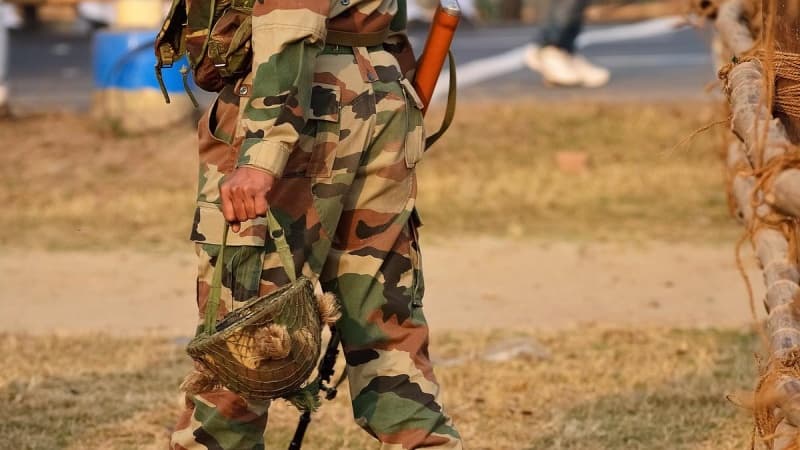
CJI tells petitioner that he cannot have a “private understanding” of what his religion permits while in uniform; Justice Bagchi says Article 25 protects “essential religious features”, not every sentiment

The Supreme Court refused to interfere with a Delhi High Court decision that had upheld the Army’s action, saying Samuel Kamalesan’s conduct was incompatible with military discipline. Image for representation only | Photo Credit: Getty Images/iStockphoto
The Supreme Court on Tuesday (November 25, 2025) upheld the dismissal of a Christian Army officer who refused to enter the sanctum sanctorum of his regiment’s temple to perform pooja, saying that he had used his “personal understanding” of what his religion permits to break military discipline and, in the process, insulted his troops.
“Leaders have to lead by example. You insulted your troops. When a pastor, a leader of your faith, counselled you that it was alright, you should have left it at that. You were cantankerous… You cannot have your private understanding of what your religion permits. That too, in uniform,” Chief Justice of India Surya Kant, accompanied by Justice Joymalya Bagchi on the Bench, remarked.
The Chief Justice described the refusal of Samuel Kamalesan, the petitioner, to participate in the regimental religious activity as the “grossest kind of indiscipline”.
“You may be outstanding in 100 things, but the Indian Army is known for its secular approach... You have failed to respect the sentiments of your own soldiers,” the Chief Justice said.
Justice Bagchi asked senior advocate Gopal Sankaranarayanan, who appeared for Mr. Kamalesan, to point out which Christian religious text barred a follower from entering a temple.
Mr. Sankaranarayanan argued that the fundamental right of his client to practise a religion under Article 25 of the Constitution cannot be taken away merely because he had joined the Armed Forces.
“Article 25 protects essential religious features, not every sentiment,” Justice Bagchi responded.
The Army, represented by Additional Solicitor General Aishwarya Bhati, submitted that Mr. Kamalesan had not attended mandatory regimental parades despite several attempts by officers to advise him. His conduct had weakened unit cohesion, he said.
The Delhi High Court had upheld the Army’s action in a judgment in May, which held that Mr. Kamalesan “kept his religion above a lawful command from his superior. This clearly is an act of indiscipline”. The High Court had concluded that his defiance was in violation of “essential military ethos”.
Mr. Kamalesan had maintained that his bond with his fellow soldiers was based on “mutual respect, allegiance to the same Flag and Nation, and on the basis of their Indianness, shared meals, exercises, sleeping quarters, and assignments. The creation of fraternity is not restricted to religious parades and activities”.
The Union government had responded in the High Court that the troops derived motivation, pride and generated their war cries from devotional practices to a deity. When an officer distanced himself from these practices, it would adversely affect the morale of the troops, undermining regimentation, cohesion, and unity during combat. (The Hindu)

















.webp&w=256&q=75)









NEWS EXPRESS is Nigeria’s leading online newspaper. Published by Africa’s international award-winning journalist, Mr. Isaac Umunna, NEWS EXPRESS is Nigeria’s first truly professional online daily newspaper. It is published from Lagos, Nigeria’s economic and media hub, and has a provision for occasional special print editions. Thanks to our vast network of sources and dedicated team of professional journalists and contributors spread across Nigeria and overseas, NEWS EXPRESS has become synonymous with newsbreaks and exclusive stories from around the world.